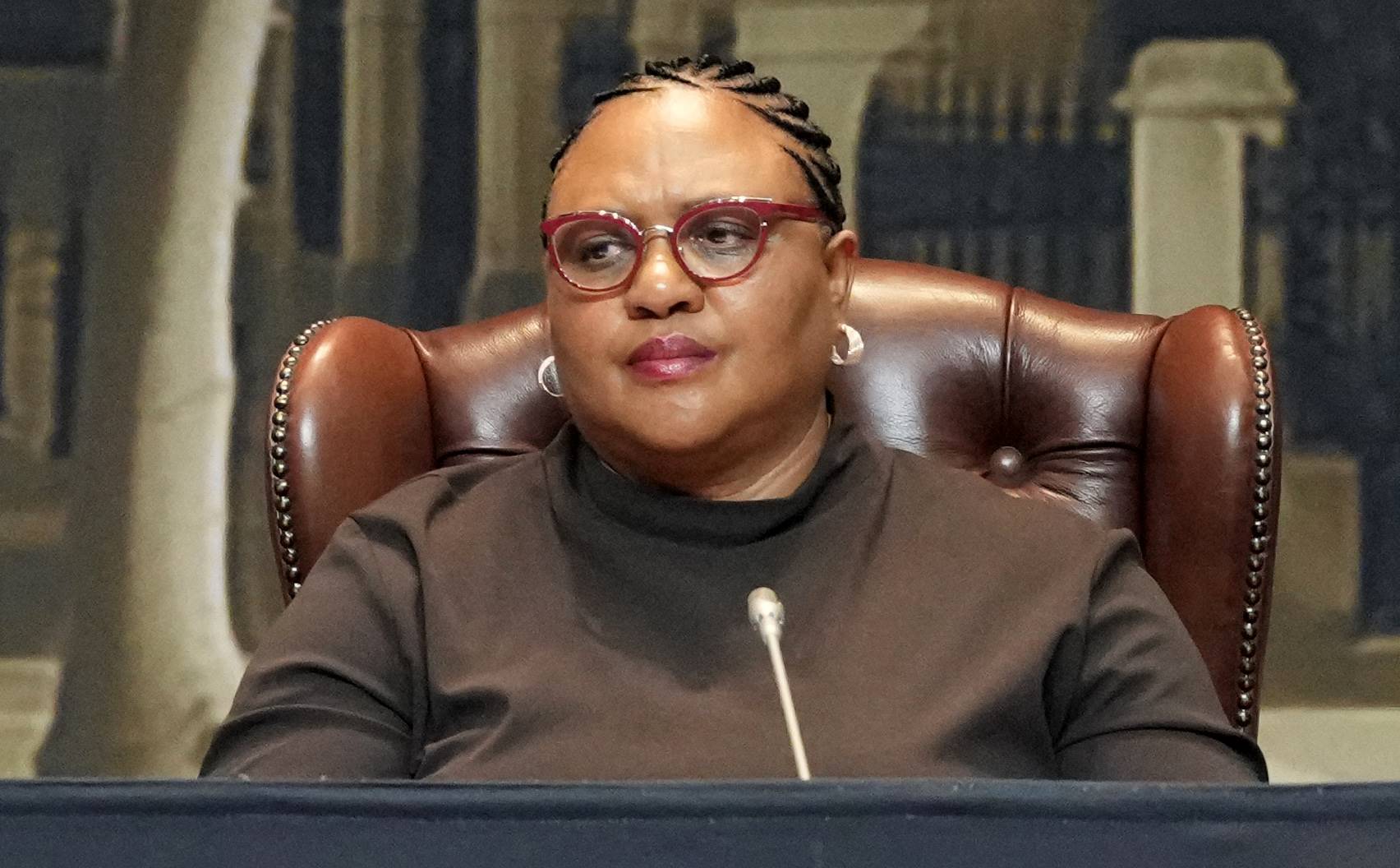National Assembly Speaker Thoko Didiza has agreed to a debate on proposed electricity hike. (Brenton Geach/Gallo Images)
- A DA spokesperson says a proposed electricity increase would be “horrendous for South Africans”.
- Municipalities also object to Eskom’s increase in electricity tariffs
- A petition was launched to garner support for rejecting the tariff increase.
National Assembly Speaker Thoko Didiza has agreed to the DA’s request that Parliament debate Eskom’s proposed 36% electricity tariff increase to the National Energy Regulator of South Africa (Nersa).
Last week, News24 reported that the DA not only rejected Eskom’s proposed electricity hike, but its mayoral caucus had also written to the regulator to raise its disdain.
The DA has also started a petition to garner support for rejecting the tariff increase.
In a statement on Sunday, the DA’s spokesperson on electricity, Kevin Mileham, said Didiza had “officially acceded to schedule our debate of urgent public importance against the tariffs.”
“National Assembly Speaker Thoko Didiza has confirmed that the DA debate will proceed, requesting the National Assembly specifically to consider the legality of Eskom being allowed to add a ‘make-up tariff’ next year to every user’s billing.
“The debate will specifically interrogate the National Energy Regulatory Authority’s (Nersa) decision to allow Eskom to recover an extra R8 billion next year, through this ‘make-up tariff’ which it calls a ‘regulatory clearing account’ and which will allow Eskom to collect an extra R8 billion to make up for shortfalls in its revenue in previous years,” said Mileham.
READ | DA challenges Eskom’s request to Nersa for 36% electricity tariff hike, starts petition to garner support
In June, the Daily Maverick reported Eskom planned to apply for an increase of up to 44% in the electricity tariff it charges customers – and, if the power utility had its way, the increase could be implemented as early as 1 April 2025.
The report referred to a confidential Eskom draft document.
It detailed increases in electricity tariffs for the financial years from 2026 to 2028, which Eskom, at the time, planned to submit to Nersa.
According to the report, Eskom wanted to ask Nersa for an increase of 36.15% in the standard tariff that it charges non-municipal customers during the financial year 2026, 11.81% in 2027, and 9.10% in 2028.
These customers are directly charged by Eskom and supplied electricity by the power utility.
In the statement, Mileham said the increase’s impact would be “horrendous for South Africans already struggling with a cost-of-living crisis”.
“If Nersa grants Eskom’s request for a further increase of 36% next year, on top of the R8 billion they want to levy as a ‘make-up tariff’ millions of South Africans are going to be forced to choose between buying food and making electricity payments. The combined increase will force consumers who currently spend R900 per month on electricity soon to pay R1 260 per month.”
He added:
This is why the DA will fight this tooth and nail.
Mileham said having the debate in Parliament is the party’s first victory in fighting against the “exorbitant electricity bills”, but it is also an important step by the DA in protecting South African households that are already financially burdened.
Last week, the DA’s spokesperson, Willie Aucamp, said the party’s national caucus of local government had written to Nersa to reject the proposal, which would see South Africans pay more for electricity.
Aucamp said at the time:
Our mayoral caucus got together, and they are unanimously opposed to these tariff increases and have decided to jointly oppose this from their municipalities. They have already sent affidavits to Nersa, where they declared the dispute.
News24 has seen letters written by the uMngeni, Mossel Bay, Langeberg, and Hessequa municipalities objecting to Eskom’s increase in electricity tariffs.
Aucamp said the party had also started a petition and was seeking as many signatures as possible.
The petition, which seeks 50 000 signatures, had 11 118 signatures by Sunday.
